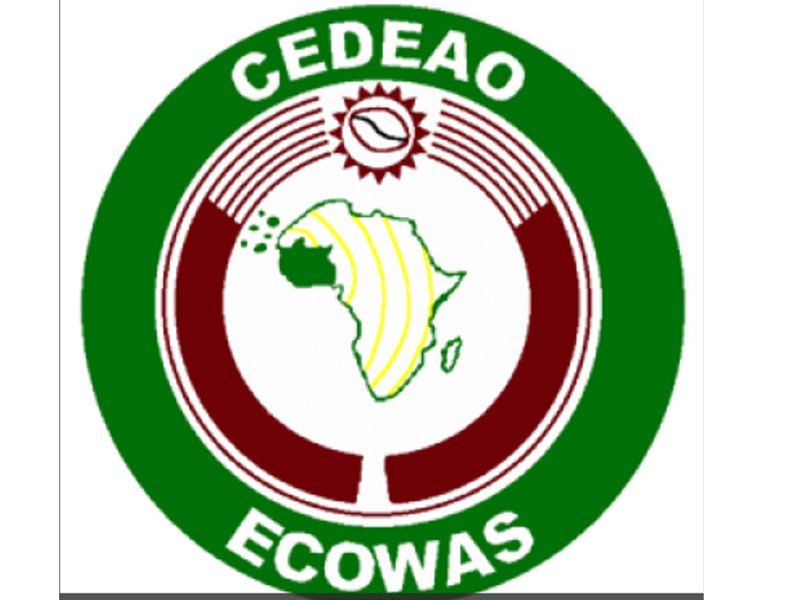Investigate marginalisation of Nigerians at ECOWAS
Allegations of marginalisation of Nigerian staff at the Economic Community of West African States (ECOWAS) headquarters in Abuja, are disheartening, disappointing and bear direct correlation with the country’s un-strategic foreign policy and practice. Though the Buhari administration, in 2020, had muted ‘Nigeria First’ foreign policy, as against the previous ‘Africa as the centrepiece’ of the […]

Allegations of marginalisation of Nigerian staff at the Economic Community of West African States (ECOWAS) headquarters in Abuja, are disheartening, disappointing and bear direct correlation with the country’s un-strategic foreign policy and practice. Though the Buhari administration, in 2020, had muted ‘Nigeria First’ foreign policy, as against the previous ‘Africa as the centrepiece’ of the philosophy of our relations with other countries, this is yet to be seen. From multiple complaints, among them petitions by Nigerian staff at ECOWAS, Nigeria’s Permanent Representative at ECOWAS, Musa Nuhu, and the First Deputy Speaker of the ECOWAS Parliament, Ahmed Idris Wase, it is clear that the allegations, bordering on nepotism by Francophone management staff, are not unfounded.
For instance, Nuhu had formally written a letter of complaint on the matter to the Speaker of the ECOWAS Parliament, Sidie Mohamed Tunis, saying “I have the honour to refer to our verbal discussion…and formally inform you that the attention of the Permanent Mission of Nigeria to the ECOWAS Commission has been drawn to a number of complaints by Nigerian staff working at the ECOWAS Parliament. The grievances border around stagnation and overlooking of staff already working in the parliament in favour of outsiders in the ongoing recruitment for divisional heads and professional staff. This action directly contravenes the recommendations of the 30th meeting of the ECOWAS Administrative and Finance Committee as well as the position of the Council of Ministers, which directed that internal candidates should be prioritised in filling existing vacancies in ECOWAS institutions, as recommended in the Staff Skills Audit Report.”
On his part, the First Deputy Speaker of the ECOWAS Parliament, Ahmed Idris Wase, referring to the alleged marginalisation of Nigerians at the regional body’s headquarters, threatened thus, “If you are in a system, and you are not getting the right results where you are investing your money, it pays best to walk out of the union. There are few countries that want to run ECOWAS like a cabal but we will not tolerate that. Yes, we will pull out if we don’t get the desired result from this.” It is believed that Nigeria has pumped as much as $1.6 billion into ECOWAS, the highest by any member nation, without enjoying commensurate benefits.
The ECOWAS Commission came out last week to deny the allegations of recruitment bias against Nigerians. Its Vice Chairman of the Parliament’s Recruitment Committee, Edwin Snowe, responded by saying; “Recruitment into the ECOWAS institutions is very competitive and cannot short-change any country let alone Nigeria that has made invaluable contributions to the development of the community. There was no resolution reached at the plenary to suspend recruitment into the P5 positions as is being insinuated by Nigerian legislators. Nigerians are adequately represented in ECOWAS Parliament and other institutions of the community.”
ECOWAS has officially denied the allegations, we call on Nigeria’s Foreign Affairs Ministry to step into the crisis and work with relevant organs of the regional body for a thorough investigation to be carried out. The ECOWAS secretariat is the engine room for the implementation of the lofty objectives of the organisation. It is meant “To promote economic cooperation among member states in order to raise living standards and promote economic development.” It is also tasked with the responsibility to tackling “some security issues by developing a peacekeeping force for conflicts in the region.” These tasks are enormous, and may not be tackled properly in an atmosphere of rancour among the management staff at the secretariat.
At the moment, ECOWAS is faced with myriad challenges, primarily socioeconomic issues that shake the region’s relative stability and economic progress. The trade relations among the 15 member countries remain very dismal, as it is frustrated by mutual trust deficit, leaning towards foreign powers or partners, nepotism, and discrimination along linguistic lines. There are also other challenges like terrorism and violent extremism, piracy, political instability, elections-related violence, drug trafficking or deadly viruses. The secretariat is vested with the responsibility of vigorously implementing policies and strategies to deal with these issues. But it is apparent that petty power-pay and employment scandal are displacing these priorities at the secretariat. This is totally disappointing.
The 15 member countries: Benin, Burkina Faso, Cabo Verde, Cote d’Ivoire, The Gambia, Ghana, Guinea, Guinea-Bissau, Liberia, Mali, Niger, Nigeria, Senegal, Sierra Leone and Togo, must come together to dispassionately discuss and solve the problems that have caused bad blood at the secretariat. We insist that employment in positions at the secretariat must be done according to laid down rules, and no country must be marginalised. The allegations by the Nigerian staff must not be dismissed, as the current crisis could snowball into a bigger fire, if Nigeria stops funding ECOWAS or even withdraw from the body, as threatened by the National Assembly. Nigeria must not withdraw from the body; instead, efforts should be made to lift ECOWAS to the height attained by its peers – the European Union, the South African Economic Development Commission (SADC), and even the ASEAN Economic Community – which are driving economic development and prosperity in various parts of the world. With a better-run ECOWAS, there will be enough jobs in the region to go round among citizens of member-nations.
